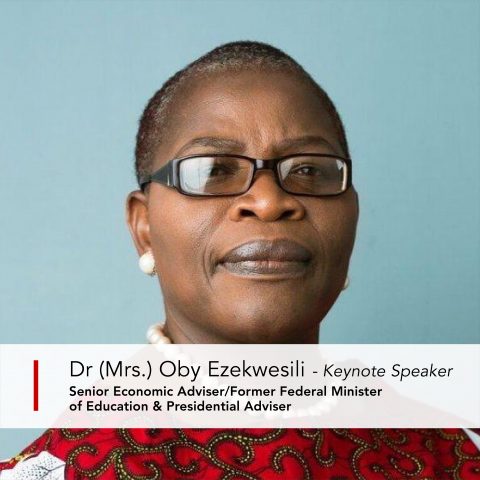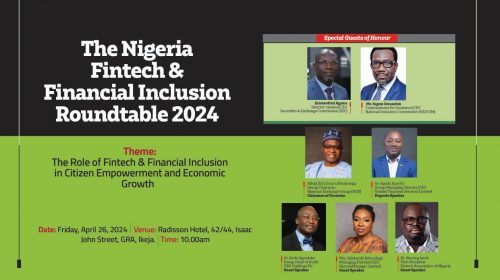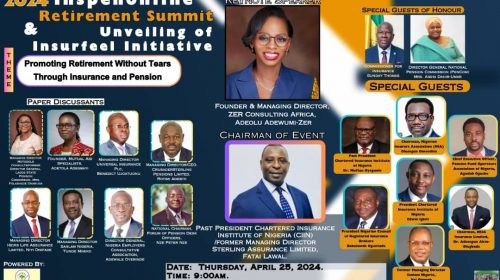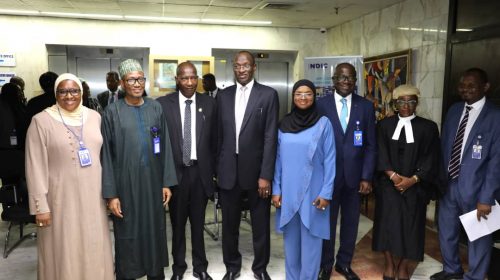Female unicorn Dr Oby Ezekwesili shared personal insights at ACCA Nigeria event to mark International Women’s Day

Former presidential candidate Dr Oby Ezekwesili was the keynote speaker at the Female Unicorns on the Rise webinar organised by ACCA Nigeria to mark International Women’s Day.
Dr Ezekwesili, who is senior economic advisor for the Africa Economic Development Policy Initiative (AEDPI), gave an inspiring speech entitled ‘Busting the myths of meritocracy’.
She praised the ACCA report ‘The Slow Path to the Top’ for setting out the evidence for challenging current practices and barriers that stand in the way of women’s success. And she argued that getting the best out of women makes sense for governments and organisations.
She added: ‘A world in which women are optimised is a world that even the most masculine of institutions are realising is a better world. Whether it be the big five or six, the audit oraccountancy firms, or the international financial institutions of the world, or the IMF or even the United Nations organisation, more research has proven that everything about achieving the sustainable development goals is tied to the idea of inclusion.
‘Inclusion is central to improving the GDP of the world. In some instances, there are countries that are said to have the potential to double their GDP if they would include their women in the development agenda. There are companies in sectors that are said to lag behind competitors by as much as 60%, because they failed to have women in decision making positions within their systems.’
The co-founder of Transparency International related an anecdote about her time as Education Minister, where only two of 11 directors were women. Dr Ezekwesili asked human resources to conduct an assessment of the abilities of her whole team in an effort to find the strongest talent.
She said: ‘That process was incredible. The women who had been forgotten in the course of their career in the Ministry of Education were actually amazing women who showed up in that process to have been so much more prepared for the role of leadership than a lot of their male counterparts.
‘At the end of the exercise, it was shocking, but the composition of my leadership team moved in the opposite direction. It ended up with nine women as directors of departments and two men. I was accused of reverse discrimination, but I could use my ultimate and utmost belief in empirical evidence as my argument that I did not set out to favour the women. I simply made sure that the systemic barriers in their way were removed and they showed up at the top.’
The event’s welcome address was from Lucia Real-Martin ACCA global executive director markets, who said: ‘This year, our global theme is Choose to Challenge, which is challenging bias when we see it and creating a much more diverse and inclusive workplace.
‘For ACCA, Inclusion, Integrity and Innovation are part of our core values and this year it aligns with one of our brand themes ‘Inclusion in Action’.’
Lucia mentioned some key gender diversity statistics from ACCA’s integrated report, which showed:
▪ 60% of all our council globally are women (one of them from Nigeria)
▪ Globally 47.3% of are members are women, 46% in Nigeria and 37% in Africa
▪ 60% of our students are women, 49% in Nigeria, 47% across Africa
Adenike Adeyemi, executive director FATE Foundation, said another report would also form the basis for the discussion – the joint ACCA Nigeria/Fate Foundation report on improving financial literacy amongst Nigerian MSME’s
Adenike highlighted one finding that suggested ‘women reach executive level seven years after men. The implication of this was a term generated in the report called a two-tournament gender system for reaching executive level. Men enter a fast track route reaching upper management well in advance than women’
A panel discussion was held, moderated by Adenike, which featured Ngover Ihyembe-Nwankwo (chairperson of the Executive Council of WIMBIZ), Joseph Owolabi (ACCA Global vice president), Oghogho Osula (Non-Executive Director Emerging African Asset Management Ltd) and Victoria Ajayi ( deputy CFO TVC Communications).
Tom Isibor, head of ACCA Nigeria, closed the webinar and said: ‘It is important that we all take note of the issues confronting women and contribute to ensuring that we create a platform, an environment in which we can look for resolutions around these issues.’






Leave a Reply